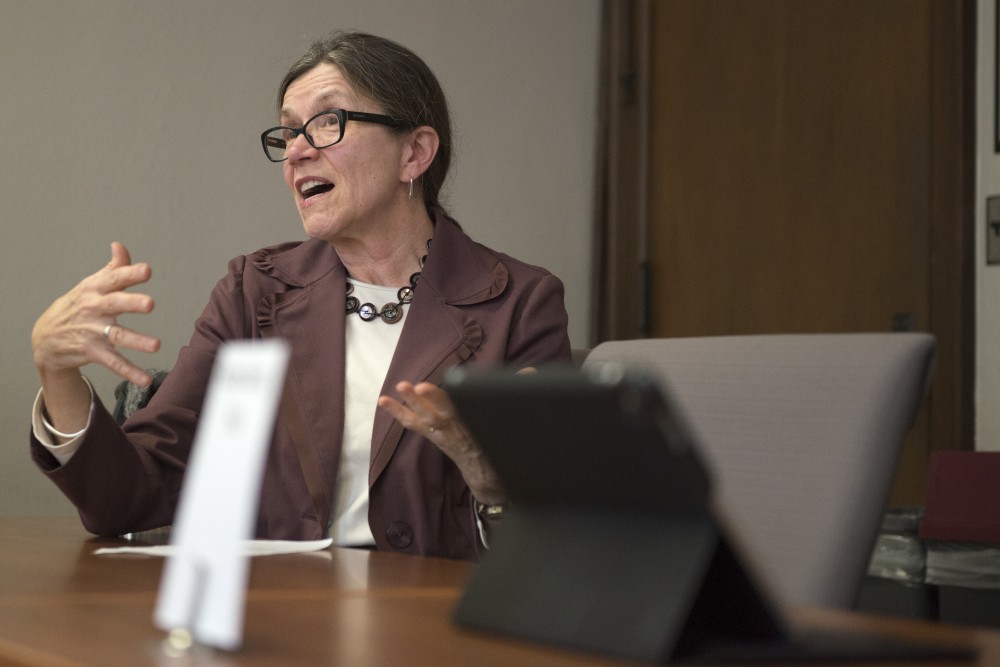When members of a University of Minnesota task force published recommendations for professors to support student mental health last spring, they didn’t want the document to end up gathering dust on a shelf.
University professor Sue Wick has made educating faculty and staff on these recommendations her personal mission. This semester, Wick is speaking at various faculty committees in hopes of limiting faculty-induced student stress.
“These are recommendations, not mandates… Instructors and faculty don’t like being told what to do. It is much more effective to just go through individual faculty members and departments,” Wick said. “My part of this deals with getting instructors on board with preventing student stress and ways to respond to it.”

The report, published by the Provost Joint Task Force on Student Mental Health, details five key points involving faculty awareness of the role they play in student stress and fostering an environment that promotes positive mental health for students.
Since then, Wick has spoken at conferences, meetings and to individual faculty in an attempt to raise awareness about the issue.
This method of giving presentations and speaking with people is slow-going but effective, she said.
“What I don’t think faculty often get is that they may be the source of that stress for students,” said Wick. Faculty can alleviate this stress by taking steps like evenly distributing grades across many assignments rather than one exam, she said.
The response Wick has received from faculty so far has been overwhelmingly positive, Wick said.
Emily O’Hara, care manager for the Office for Student Affairs, and Matt Hanson, chair of the Provost Committee on Student Mental Health, have teamed up with Wick to give training and presentations about student mental health. They focus on student stress and train attendees how to intervene and approach someone in a mental health crisis.
“The more preventative work we can do around this issue, the better,” Hanson said.
On Wednesday, the trio gave a presentation to the Senate Committee on Student Affairs that included small-group discussions and training videos.
“We are telling staff and faculty that you don’t need to be a mental health expert. If you notice something, say something,” O’Hara said during the meeting.
The Academy of Distinguished Teachers, a group of University faculty members, has also taken an interest in the recommendations.
The group worked with the Center for Educational Innovation and Boynton Health to shoot a video about how faculty can help ease stress and be aware of students in distress. Wick is in the video and discusses the recommendations the task force brought forward last spring.
“We wanted to identify ways in which faculty can proactively reduce the stress on students without sacrificing academic rigor,” said Ken Leopold, Academy of Distinguished Teachers president.
The group hopes to distribute the video as a resource for instructors.
“[The Academy of Distinguished Teachers] are a good avenue for promoting this thing,” Wick said.
The list of recommendations is available on the Faculty Consultative Committee website.








